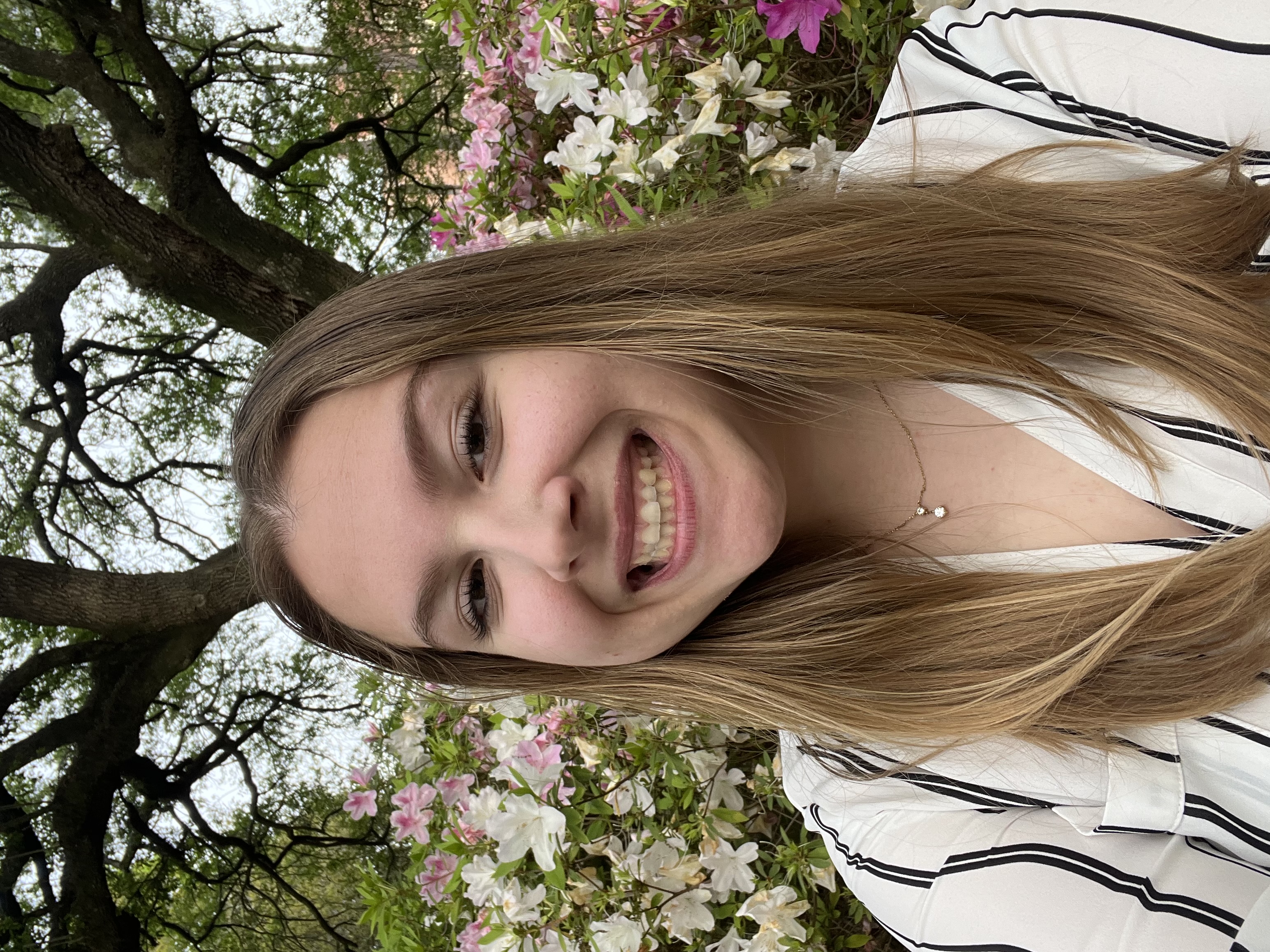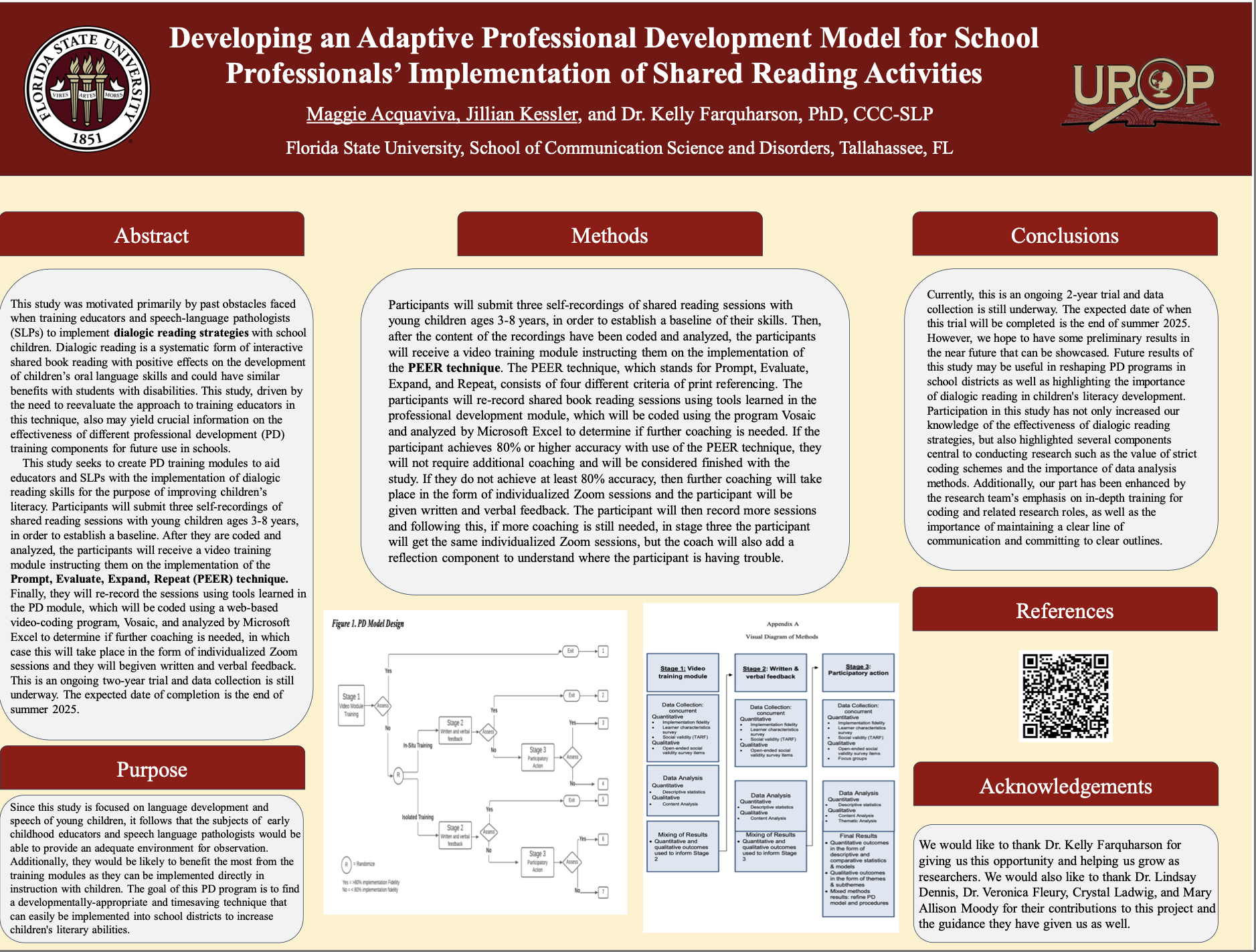Research Symposium
24th annual Undergraduate Research Symposium, April 3, 2024
Maggie Acquaviva Poster Session 3: 1:30 pm - 2:30 pm/21

BIO
Maggie Acquaviva is an undergraduate at Florida State University majoring in Communication Science and Disorders with a minor in Spanish. She has been working with FSU's CLaSS Lab researching children's literacy and print referencing, and will go on to pursue the field of Speech-Language Pathology.
Developing an Adaptive Professional Development Model for School Professionals' Implementation of Shared Reading Activities
Authors: Maggie Acquaviva, Kelly FarquharsonStudent Major: Communication Science and Disorders
Mentor: Kelly Farquharson
Mentor's Department: Communication Science and Disorders Mentor's College: Communication and Information Co-Presenters: Jillian Kessler
Abstract
This study was motivated primarily by past obstacles faced when training educators and speech-language pathologists (SLPs) to implement dialogic reading strategies with children. Dialogic reading is a systematic form of interactive shared book reading with positive effects on the development of children’s oral language skills and could have similar benefits for students with disabilities. This study, driven by the need to reevaluate the approach to training educators in this technique, may also yield crucial information regarding the effectiveness of different professional development (PD) training components for future use in schools.
This study seeks to create PD training modules to aid educators and SLPs with the implementation of dialogic reading strategies for the purpose of improving children’s literacy.
Participants will submit three self-recordings of shared reading sessions with young children ages 3-8 years, in order to establish a baseline. After they are coded and analyzed, the participants will receive a video training module instructing them on the implementation of the Prompt, Evaluate, Expand, Repeat (PEER) technique. Finally, they will re-record the sessions using tools learned in the PD module, which will be coded using a web-based video-coding program,Vosaic, and analyzed by the research team to determine if further coaching is needed, in which case this will take place in the form of individualized Zoom sessions and they will be given written and verbal feedback.
This is an ongoing two-year trial and data collection is still underway. The expected date of completion is the end of summer 2025.
Keywords: literacy, reading, professional development

